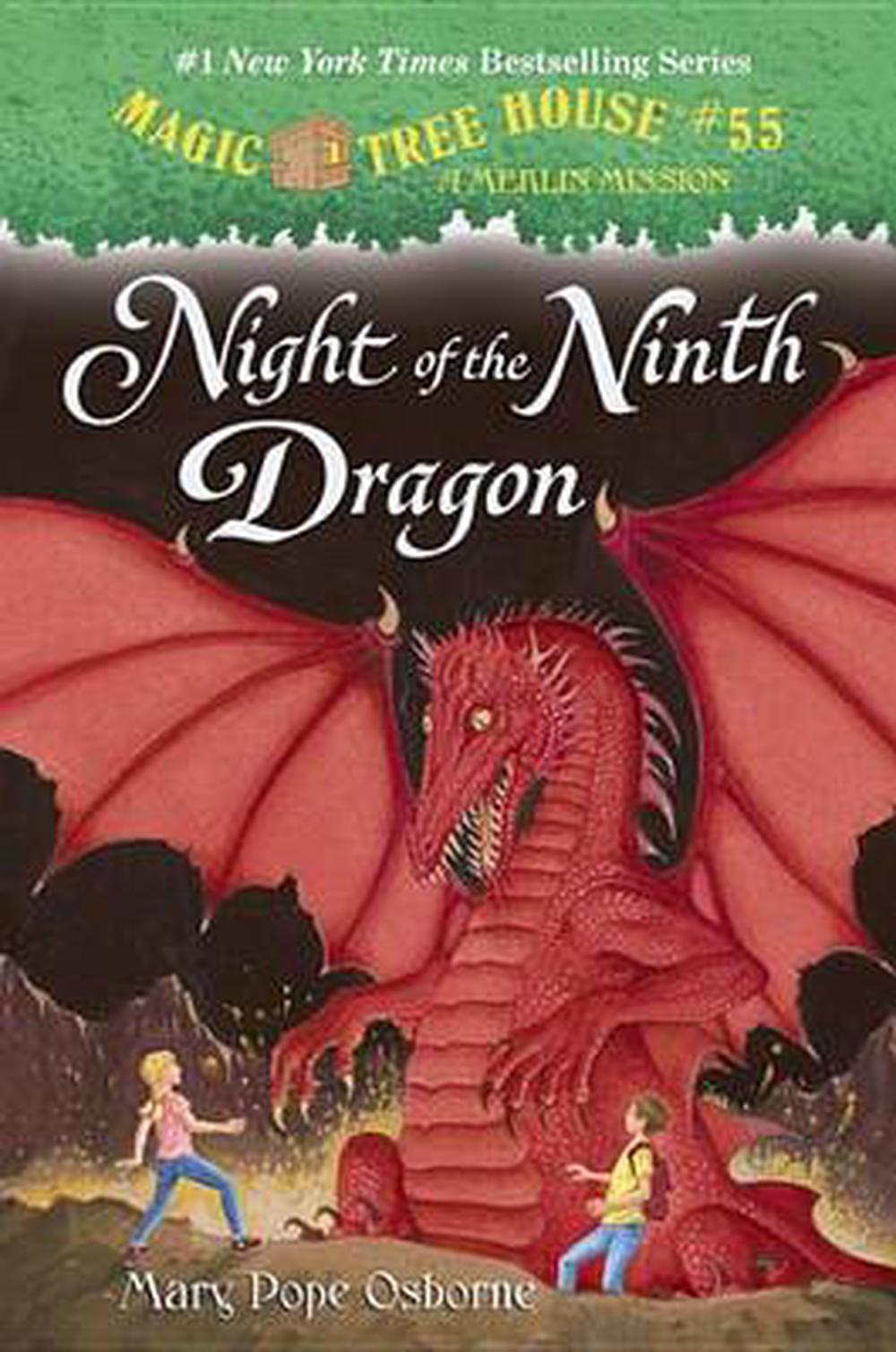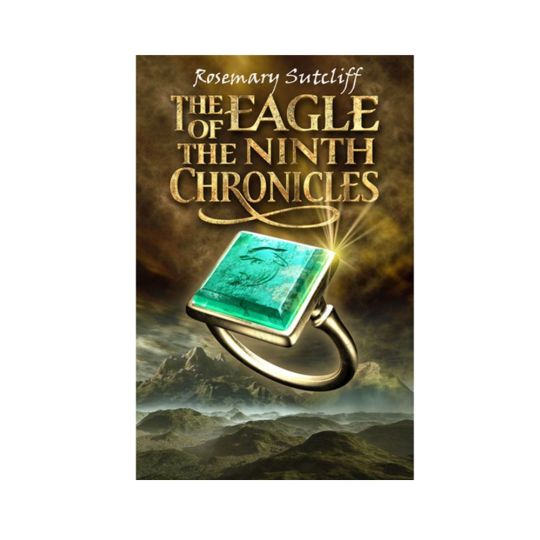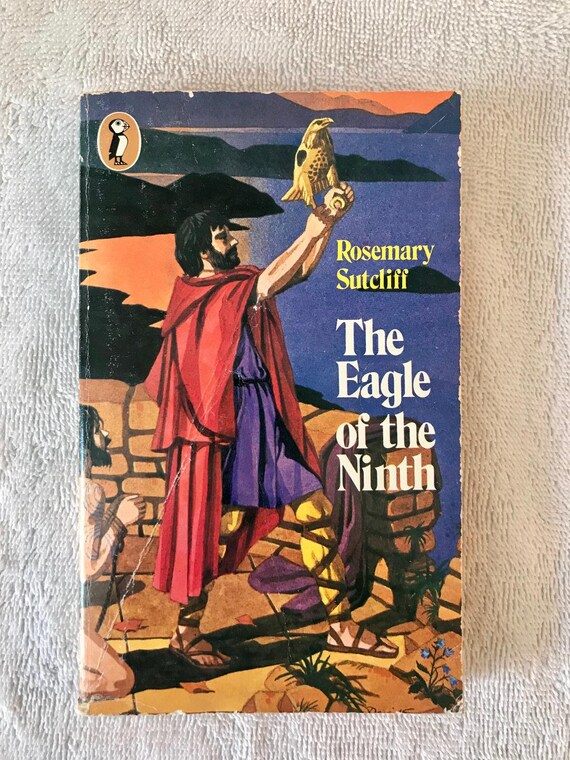
The Eagle of the Ninth is a historical adventure novel for children written by Rosemary Sutcliff and published in 1954. The story is set in Roman Britain in the 2nd century AD, after the building of Hadrian's Wall.
The Eagle Of The Ninth Book Amazon
- The Eagle of the Ninth is a historical adventure novel for children written by Rosemary Sutcliff and published in 1954. The story is set in Roman Britain in the 2nd century AD, after the building of Hadrian's Wall.
- The Eagle of the Ninth (Turtleback School & Library Binding Edition) by Rosemary Sutcliff and a great selection of related books, art and collectibles available now at AbeBooks.com.

Book Review by Jason Golomb
Rosemary Sutcliff’s 1954 classic “The Eagle of the Ninth” is an archetypical tale of human connections, self-discovery, redemption and choice. In tone and emotional scope, one is reminded of John Knowles’ “A Separate Peace” or J.D. Salinger’s “A Catcher in the Rye”. The book will resonate with fans of Roman Empire-era fiction; and those that are familiar with the story from their youths, will reconnect warmly and fondly with Marcus Flavius Aquila and his cadre.
Sutcliff explains in her original introduction that “Eagle” is based on the legendary disappearance of the Roman Ninth Legion after marching to Northern Britain in response to a rising among Caledonian tribes. The Eagle of the Ninth is the traditional legionary standard – a bronze eagle sculpture with bolts of lightning clutched tightly in its claws. Sutcliff combined this tale with modern excavations at Silchester that uncovered a wingless Roman eagle, a cast of which is still on display at the Reading Museum.
Marcus Flavius Aquila is the son of the Commander of the First Cohort of the infamous IX Legion Hispania. Marcus is Pilus Prior Centurion of the Fourth Gaulish Auxiliary of the Second Legion, based in southern Britain – leading his six hundred troops to relieve a command in Durinum. Marcus’ connection to his father runs deeply and the tenor of our character is set early.
Marcus is left wounded and unable to continue with his military career after successfully leading the defense of his fort from a local native uprising. He removes himself to the home of his paternal Uncle in nearby Calleva (home to the modern day Reading Museum of Silchester).
Enter Esca – a defeated gladiator that Marcus purchases as his personal slave. Their relationship quickly becomes much more than master and slave, and we find that Esca and Marcus are almost mirror reflections of each other. Esca is from the Brigantes tribe from northern Britain – his father, like Marcus’, was a commander, a clan chieftain. In a battle against the Legions, Esca was injured, taken prisoner and enslaved to fight as a gladiator. But Esca describes how, ten years earlier, he watched a Legion marching north that never came marching back - “I had never seen such a sight before. Like a shining serpent of men winding across the hills; a grey serpent hackled with the scarlet cloaks and crests of the officers.”
This memory of Esca’s echoes Marcus’ own memories of his father’s farewell, watching the Ninth march off, never to return.This symbolic tether that binds the characters is but the first of several similarly themed relationships: Pup, the wolf cub rescued by Esca after a hunting trip results in the death of the mother wolf; Cottia, the parentless pretty young thing living with her Aunt and Uncle next door to Marcus; Guern the Hunter, a former Ninth legionary who went native after fighting under the command of Marcus’ father.
Through each of these characters we see another major characteristic of “Eagle” – choice. Each character faces a key moment in their existence, teetering on a boundary (both real and existential) of the freedom to choose one’s own direction. These decisions set the path on which the characters will stride and provide them their opportunity for redemption.
Marcus faces his key decision after an old legionary doctor heals his leg to the point where he can have a normal physical life (though not with the Legions). His decision is the commitment to find and return the Ninth’s eagle, to create the opportunity for the Ninth to be reborn and to bring substantive meaning and redemption to his father’s mission and death.
Esca’s decision comes right after Marcus commits to finding the eagle. Marcus sets Esca free and asks him to join his journey now that he has the real freedom to choose. Esca stays loyal and the pair plans their adventures north.
Shortly before the dramatic scenes between Esca and Marcus, the two young men bring Pup to the edge of the woods in which he was found. They walk home and allow Pup the choice to reconnect with the wild, or return to his domesticated life. A few hours later, Pup returns home to the boys.
The boys meet Guern the Hunter shortly after they cross north past the Wall to find the eagle. By all outward appearances, Guern is from a Northern tribe. But through subtle and not-so-subtle hints, we find that Guern is Roman and fought alongside Marcus’ father 10 years earlier. Guern’s character represents a key guidepost – ultimately leading the boys to the eagle and later leading them to the Wall and safety on their way home.
Guern’s choice is whether to stay with his native family or return home to the Latin world with Esca and Marcus. He chooses to stay with his family and Marcus and Esca return home alone.“Eagle” is rife with symbols that seep in and throughout the book like the mists so prevalent in Sutcliff’s Caledonia and Valentia. Marcus’ name – Aquila – in fact, means eagle in Latin.
Roman Britain is the uniquely penetrating texture to a story that could, conceivably, take place in the early American West, Colonial Africa or even Exploration-era Central and South America. Sutcliff is passionate in her exposition of Britain. The reader feels the claustrophobia and breathlessness as she writes of the weighty softness of the mists of the North. It’s no wonder that “Eagle of the Ninth” is currently in production for the big screen. It’s ready-made for the mood-riddled cut-aways of Marcus and Esca riding through Caledonia, and the mist-lined fort skirmishes as they battle their way home.
Hadrian’s Wall and the northern Roman forts and signal-towers bring to mind the image of ancient ruins and crumbling stones that are strewn across the modern British landscape. These portals are very alive in Marcus’ world, representing the wild, a passage from one world to another, the past and future.
In addition to the expansive symbolism and vivid realism, “Eagle of the Ninth” is simply a terrific story. Esca and Marcus’ escape with the Eagle moves at a lightning pace, leaving the reader with intense anticipation at each phase of their race south to the safety of the Wall.
The first half of the book is spent developing the characters, their motivations and establishing the connective themes between them. Sutcliff’s patient and crafty development results in characters to which the reader can relate. An emotional bond connects the characters to each other and the reader to the characters. By comparison, Conn Iggulden’s focus on more “supreme” characters makes them unrelatable almost by definition (it’s hard to find much in Julius Caesar or Genghis Khan that I can relate to). Simon Scarrow’s characters are fun, but also more cartoonish – his Macro and Cato are like acquaintances compared to the more familial Marcus Aquila.
The book is written for young adults; however, vocabulary and phrasing nod to the book’s British origins in the 50’s. It’s a quick and fun read, and I found myself pausing at different points, tying together the symbolic links between characters. The book will appeal to a broad audience who’ll enjoy Sutcliff’s adventure and vividly real experience, while connecting to her characters and their growth as the story progresses.
Marcus Aquila

The Eagle Of The Ninth Oxford Bookworms
Discuss and order this book online at Amazon
Comments are closed.